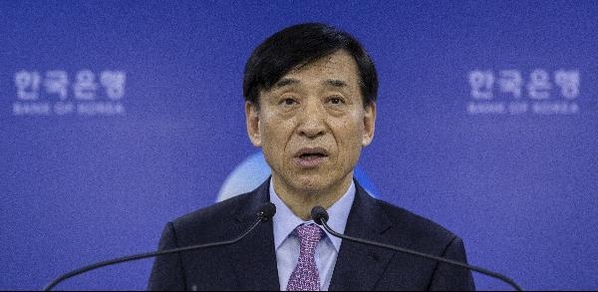Input 2021.02.25 11:34 | Revision 2021.02.25 13:27
In the decision on the direction of monetary policy released after the meeting of the Financial Services Commission on February 25, the BOK said, “The rate of increase in consumer prices this year is in the 1% range, surpassing the forecast of last November (1.0%) due to rising international oil prices and gradual economic improvement “The core inflation rate is expected to be around 1%.”

The decision said, “The rate of increase in consumer inflation remained at the mid-0% level due to continued decline in public service prices despite an increase in agricultural and fishery prices, and the core inflation rate (index excluding food and energy) remained in the mid-0% range.” “The expected inflation rate for the general public has risen to around 2%,” he said. It is judged that the situation in which consumers’ expectations for inflation exceed the actual inflation rate.
However, concerns over inflation were dismissed, and monetary policy suggested that the domestic economy will continue to ease for the time being until the point of normalization. As in January of this year, the decision stated, “Amid the slow recovery of the domestic economy and economy, inflation pressure on the demand side is expected to remain at a low level, so we will maintain the easing trend of monetary policy.”
The BOK is still paying close attention to the instability of financial markets. The decision said, “We will closely examine the development of Corona 19 and the ripple effect of policy responses so far, while paying attention to changes in financial stability such as the flow of funds to the asset market and increase in household debt.” As a part of mentioning the factors that determine the base rate,’household debt’ was added from the decision in November of last year, and’money flow to the asset market’ was mentioned for the first time in the first decision of this year. Such anxiety factors are present. The KFTC decided to freeze the standard interest rate at 0.50% per year, the previous level.
The decision analyzed the recent stock market overheating, saying, “The stock price has fluctuated considerably as the expectation of an economic recovery and a sense of alertness caused by a short-term surge affected together.” The KOSPI index has surpassed 3,000 points (P) this year in about 14 years and has been fluctuating in the box area. The KFTC continues to show a sense of caution against the recent concentration of the asset market, such as’Eternal Loan (Loan to the Soul)’ and’Debt Investment (Investment in Debt)’.
The decision also diagnosed that housing prices continued to rise following last month, saying, “Household loans have increased, and housing prices have increased in both the metropolitan area and localities.” Last year, household loans (98.88 trillion won) increased by 100 trillion won from the previous year, the largest increase in history. It is the result of the combination of debt investment caused by the stock market overheating, the demand for real estate investment and living funding from Corona 19.
As for the domestic economy, it is expected to grow around 3% this year, predicting a modest growth trend. The BOK set a growth rate of 3.0% this year consecutively in November of last year and January of this year. Despite the prolonged spread of the third coronavirus, the BOK believes that the growth will be maintained centered on “good exports in IT” and “increase in facility investment”.
However, other economic indicators showed a pessimistic view and maintained the view that “the uncertainty in recovery speed is high.” The KFTC evaluated that “private consumption continued to be sluggish due to prolonged social distancing,” and “employment situation continued to be sluggish, with the number of employed significantly decreased.”
